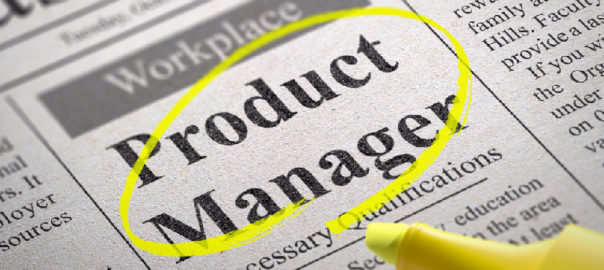In our recent blog post, we highlighted the role of a Product Manager, their primary areas of contribution and how a Product Manager builds a brand. In today’s world, companies have identified the importance of a Product Manager and how crucial is their role in deciding the future of a company. That’s why companies need to be really careful while hiring the right people for this job role. In this article, we will discuss how you can hire a great Product Manager for your company; what are the traits and capabilities to look for in a candidate during the interview process?
Let’s go!
The most important aspect of hiring the right people, especially as a Product Manager, is to zero-down on certain skills and traits which help them justify this challenging job role. These attributes can be further categorized into must have, need to have and good to have. Here are some of the important characteristics that one must look for while hiring great Product Managers:
1. Must Be A Problem Solver
A Product Manager faces a lot of challenges, roadblocks, and problems on a day-to-day basis. It’s their problem-solving skills that come to rescue here. A lot of product leaders and CEOs have told us that problem-solving ability is the most valued trait of a PM. Product development is a tricky role. Everyone needs to be on their feet during the entire product cycle and must be ready to face unseen challenges. Successfully driving a product into the market requires plenty of creative solutions to unexpected problems.
A natural problem-solving aptitude along with creative thinking is the key to success for a Product Manager. That said, don’t throw random riddles and aptitude questions at the PM candidate during the interview. It will simply set them off and then there’s only one direction the interview will go – southwards. Instead, give them some breathing space; ask them about their previous role. Let them tell you about their background, what and how have they achieved something in the past. Later on, introduce them to the company and the product. Ask them how will they manage and improve it. Problem-solving and creative thinking will gradually and naturally surface during this conversation.
2. Communication Skills Must Be Above Par
Effective communication skills are very important to be a good or great PM. Even if a candidate possesses skills like solid product management background, experience in the relevant industry, strong technical knowledge, that PM is likely to be ineffective if he cannot clearly and effectively communicate with professionals across a wide range of disciplines and teams in your company.
Product managers spend a lot of their time communicating ideas, plans, tasks, and designs to their teams. The communication includes emails communicating decisions, presentations communicating product roadmaps, specs communicating product designs, bug tickets communicating errors in the product and a lot more. Moreover, it is important for a PM to effectively communicate his vision, ideas, and strategy to various stakeholders in the company. Mastering effective communication is critical for this role.
3. Strong Product Instincts Will Do Wonders
It’s a little tricky and difficult to evaluate when it comes to product instincts. But, these are very important traits that make a great future PM. Some people are born with inherited product instincts. They just know what makes a great product. They may not be always right, but they certainly sense the right direction and correct path. It’s an essential trait in Product Managers.
Apart from the big thinking, long-term goal setting and formation strategy, there are a lot of other small decisions that a Product Manager needs to take. A strong product instinct enables them to take the correct decisions and suggest product approaches.
You can ask questions like:
- Tell me about a great product you’ve encountered recently. Why do you like it?
- What do you dislike about my product? How would you improve it?
- What problems do you think our product will encounter in the near future?
- What’s one of the best ideas you’ve ever had?
- What is one of the worst?
- What was your biggest product mistake?
4. Should Have Natural Leading Ability
A natural ability to lead is something which is essential in almost all critical roles when you have a large team to work with. Product managers have the difficult role of coordinating and leading a large cross-functional team. They must possess natural leadership skills. A great PM will have the ability to build a strong bond and generate enthusiasm among the various teams and departments which are responsible for developing the product. This is an uphill task. Often the PM will have to say no to requests from these teams or push them to work on tighter deadlines and deliver with limited resources.
Give them some hypothetical situations where leadership skills are required. Try to find out how they react and lead from the front.
5. Should Be Able to Learn From Mistakes
It’s not necessary that you’re always right, or you always take the right path. Failure is an inevitable part of life. Smart, visionary product leaders take a holistic view and a long-term view. They understand and realize that any product, strategy or idea can fail in any specific market for a number of reasons.
It’s important to gauge how a PM will react at the first product disappointment. They should not totally fall apart, instead react appropriately, analyze the reasons for failure, and then start gathering useful learnings that can increase chances of success the next time you launch the product.
How would you react to an underwhelming product launch or a new product that received a negative reaction from the market? This could be one of the interesting questions which you can ask during the interview. Some of them will tell you they’d be devastated by a product failure, some will not be so much disappointed. However, the key is how are they going to react after accepting the failure.
Hopefully, this information will help you in hiring an amazing Product Manager. To know more, discuss with our industry experts.



